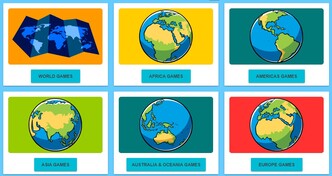Geography
Our high-quality geography education inspires our pupils to have a curiosity and fascination about the world and its people that will remain with them for the rest of their lives. Our teaching equips pupils with knowledge about diverse places, people, resources and natural and human environments, together with a deep understanding of the Earth’s key physical and human processes. As pupils progress, their growing knowledge about the world helps them to deepen their understanding of the interaction between physical and human processes, and of the formation and use of landscapes and environments. Geographical knowledge, understanding and skills provide the frameworks and approaches that explain how the Earth’s features at different scales are shaped, interconnected and change over time.
Please click on the links below to access information about the year group topics.
|
.
|
Autumn 1
|
Autumn 2
|
Spring 1
|
Spring 2
|
Summer 1
|
Summer 2
|
|
Year 2
|
-
|
-
|
-
|
|
Year 3
|
-
|
-
|
-
|
|
Year 5
|
-
|
-
|
-
|
|
Intent
Through our teaching of geography, we intend to ensure that: Teaching will engender excitement, curiosity and enthusiasm for life-long learning about geography and the world.
|
Provide pupils with an array of enriching opportunities, including opportunities for outdoor learning and fieldwork.
Through Geography we can also:
|
Implementation
Strategies for the teaching of geography
Elements of geography are delivered to the Foundation Stage children, through the Foundation Stage Curriculum (Knowledge & Understanding of the World) and are incorporated into topics.
In KS1 & KS2 Geography is taught through planning linked to the 2014 National Curriculum. The objectives have been split according to year groups and the units covered by each year group can be found on the school’s subject curriculum maps. Some elements of geography are also taught through cross-curricular topics e.g. English, history, computing, maths and role-play. In the Early Years Foundation Stage (EYFS) the children explore places, people, communities and the world through their work related to ‘Knowledge and Understanding of the World’.
A variety of teaching and learning styles in our geography lessons. Whole-class teaching methods are used. We encourage children to ask as well as answer geographical questions. We offer them the opportunity to use a variety of data, such as maps, statistics, graphs, pictures, and aerial photographs. All pupils are encouraged to reach their full potential through the provision of varied opportunities. We recognise that our curriculum planning must allow pupils to gain a progressively deeper understanding and competency as they move through the school.
Strategies for the teaching of geography
Elements of geography are delivered to the Foundation Stage children, through the Foundation Stage Curriculum (Knowledge & Understanding of the World) and are incorporated into topics.
In KS1 & KS2 Geography is taught through planning linked to the 2014 National Curriculum. The objectives have been split according to year groups and the units covered by each year group can be found on the school’s subject curriculum maps. Some elements of geography are also taught through cross-curricular topics e.g. English, history, computing, maths and role-play. In the Early Years Foundation Stage (EYFS) the children explore places, people, communities and the world through their work related to ‘Knowledge and Understanding of the World’.
A variety of teaching and learning styles in our geography lessons. Whole-class teaching methods are used. We encourage children to ask as well as answer geographical questions. We offer them the opportunity to use a variety of data, such as maps, statistics, graphs, pictures, and aerial photographs. All pupils are encouraged to reach their full potential through the provision of varied opportunities. We recognise that our curriculum planning must allow pupils to gain a progressively deeper understanding and competency as they move through the school.
Impact
The impact of the geography curriculum can be seen in the work children produce and through monitoring and evaluation.
To monitor and evaluate geography the geography subject leader will:
The impact of the geography curriculum can be seen in the work children produce and through monitoring and evaluation.
To monitor and evaluate geography the geography subject leader will:
- Review the subject at the end of year through data analysis, auditing planning and noting evidence of geography teaching throughout the school
- Reviews resource provision
- Collects samples of work, assessments and display evidence
- Support teachers via co-planning, CPD, sharing good practice, giving feedback etc
- Discussions with staff
- Interview pupils
- Works co-operatively with the SENDCo, where necessary
Entitlement (SEND)
Geography is a foundation subject in the National Curriculum. The fundamental knowledge, skills and understanding of the subject are set out in the National Curriculum.
All pupils are entitled to access the geography curriculum at a level appropriate to their needs arising from race, gender, ability or disability. Fieldwork may have to be adapted to individual requirements.
Geography is a foundation subject in the National Curriculum. The fundamental knowledge, skills and understanding of the subject are set out in the National Curriculum.
All pupils are entitled to access the geography curriculum at a level appropriate to their needs arising from race, gender, ability or disability. Fieldwork may have to be adapted to individual requirements.



